Cancer Survivors
Jan. 11, 2015
Hope and Remission, The TODAY Show, and Dottie’s Gentle Spirit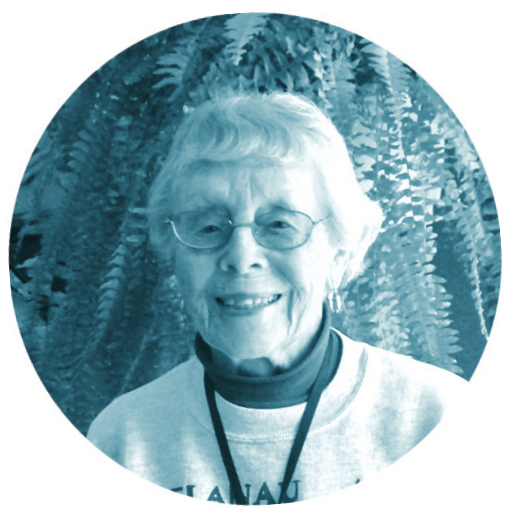
DOTTIE LANHAM, Maple City
Author’s Note: Prior to publication, Dottie Lanham passed away unexpectedly from causes unrelated to her cancers. We honor her beautiful, gentle and tenacious spirit.
In her nine decades, Dorothy Lanham experienced a lot. That included the death of friends and family, even her husband, siblings and a daughter.
Known as Dottie to her friends, the Maple City woman successfully battled three different kinds of cancer.
"I thank Doc Houghton more and more," she said, referring to the late Dr. Matt Houghton of Glen Arbor.
1994 was a grueling year for Lanham. In April, her husband Fred passed away and in June she developed respiratory problems. She got better, but was still having difficulty breathing when she saw Dr. Houghton for an infection in her leg.
"He asked me if there was anything else I wanted to talk about," said Lanham. Rather than discuss her sadness at the loss of her husband, "I said, "˜the only thing is I’m still having shortness of breath.’ He said, "˜You know, we might want to do a pulmonary study.’ A month later, I had part of my right lung removed."
Lanham was suffering from an adenocarcinoma.
"I learned then, listen to your body," she said. And she did. When she suffered back pain four years later, Lanham went to a urologist who sent her for an X-ray.
"Dr. Gillette said, "˜That’s cancer,’" said Lanham.
She then had surgery to remove the affected kidney. Lanham said each of the surgeries was a difficult ordeal and each took her about a year to fully recover.
Yet, cancer wasn’t done with her. When she had a painful spot on her hand, Lanham thought she had brushed up against a briar, but it turned out to be skin cancer. She had the spot, and another on her chest, removed.
Despite her various illnesses, Lanham’s last 20 years were lived to the fullest, filled with family and volunteering. She remained in the Maple City home her late husband had built.
Looking out over her small snow-covered lake the week before Christmas, she said she was grateful to still be here. "God must have something more for me to do," she said.
Lanham celebrated her 90th birthday on Christmas Day before passing away at Munson Medical Center on Dec. 30.
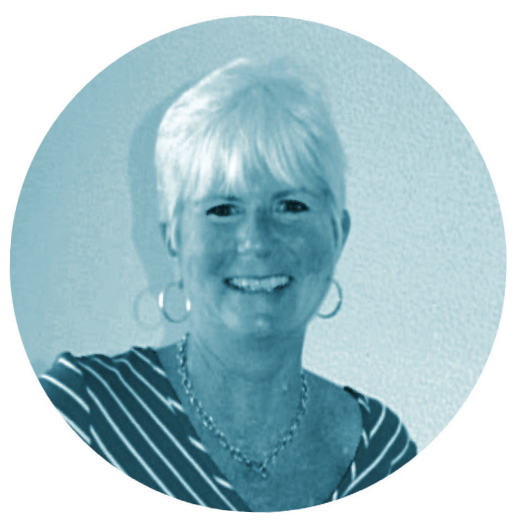
KIM STEVENS, Charlevoix
Kim Stevens looks back on her successful battle with breast cancer with mixed feelings.
"It was not a blessing – but it was," she said. That’s because she became friends with many other women suffering from the disease.
"There are a lot of women I wouldn’t have met had it not been for that diagnosis."
Of course, Stevens didn’t feel that way at first.
"It was the last thing I thought I’d hear," she said. "I thought I was going to die."
As Stevens learned more about her disease and diagnosis, she gained new perspective.
"As soon as I knew there was hope, I felt a lot better."
Stevens was diagnosed in 2000, at age 39, following a mammogram. Biopsies followed, the third of which determined a malignancy.
She then underwent a mastectomy rather than a lumpectomy with radiation. "I chose to be a little more aggressive," she said. There were no lymph nodes involved, so she was able to avoid chemotherapy, though she later went on Tamoxifen for a time.
But, cancer came knocking again. Five years ago she underwent a hysterectomy after pre-cancerous cells were found.
"I don’t know if they were related," she said. She’s since become an advocate for cancer testing and support groups.
"A mammogram saved my life," she said.
"It’s important to advocate how important it is. Get your yearly check-up."
Now, she works with other women as part of the Circle of Strength support group at Charlevoix Area Hospital. Most of the group’s members have had breast cancer themselves and are well equipped to reach out to women who have been diagnosed with the disease.
"Now, I’m working with a young woman who was just diagnosed. I try to help her through the decision process," Stevens said. "I give her input based on my experience."
Most important for Stevens is helping others reach the place where she is now.
"I consider myself cancer free."
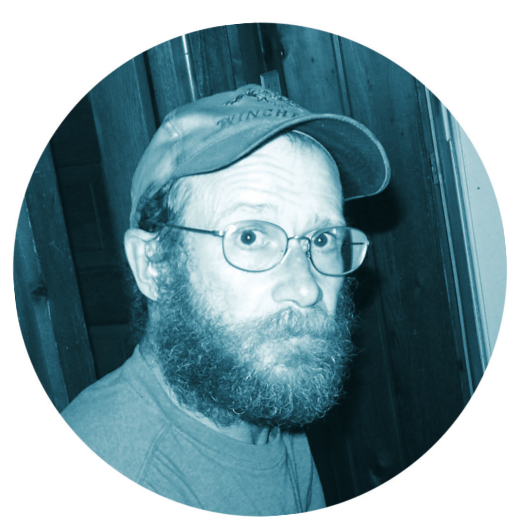
KIM TUBBS, Mesick
Kim Tubbs suffered from asthma since childhood, so his shortness of breath in early 2014 didn’t alarm him.
"There were no symptoms. I don’t pay much attention to shortness of breath," he said.
In April, Tubbs became very ill and, when he began coughing up blood, he knew it was more than the flu.
"I went into Emergency," he said. He was suspicious when an X-ray showed a spot on his right lung. The doctors performed a biopsy and it turned out he had lung cancer. The spot was actually a tumor larger than a tennis ball.
Tubbs went through a regimen of chemotherapy and radiation to shrink the tumor.
Then he had surgery – but not yet on his lung. During this time, he’d also been diagnosed with heart disease and he had an aortic valve in his heart replaced.
Following his heart surgery, he had ¾ of his lung removed.
"It was not a great spring or summer," he said.
Tubbs says his doctors are very optimistic that they were able to remove all the cancer.
"They say I don’t have any cancer. I have to go back in another month or two for another PET scan."
Tubbs was one of the lucky ones. He explains that, with this type of cancer, it is unusual for doctors to be able to remove it all.
"They say I’m one out of 100," he said. Tubbs was a smoker he’s sure that contributed to his cancer. The 58-year-old who has worked in auto garages has not yet been able to go back to work. He still gets winded very easily.
"The biggest difference is I don’t go for walks like I used to. If I walk 200 or 300 feet, I have to stop and let my lung catch up," he said.
He also continues to have some internal bleeding, which doctors believe may be a result of the radiation.
Tubbs is also a lifetime member of his motorcycle club, though he hasn’t ridden much in the last several years following an earlier accident.
"I’ve still got a bike in the garage." Through it all, Tubbs remains optimistic.
He looks at his parents’ longevity as a sign he’s going to be around for a while.
"Neither of my parents had cancer. My dad was 90 when he passed and my mom was 91," he said.
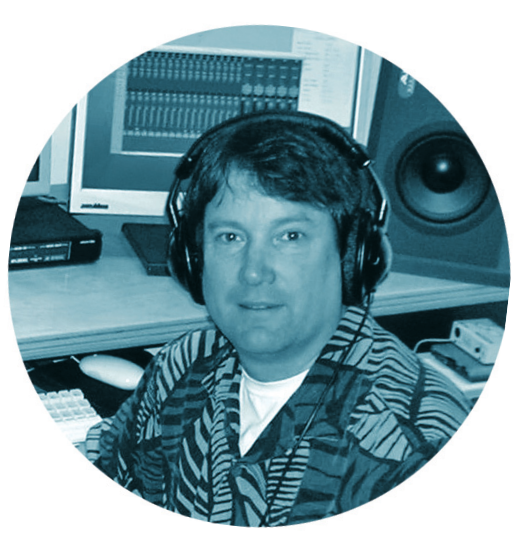
DAVID CHOWN, Acme
When pianist David Chown discovered his PSA (Prostate-Specific Antigen) level was higher than average, he wasn’t overly concerned.
"It was around 4 and the doctor said we ought to keep an eye on it," said Chown.
A working musician, Chown didn’t have health insurance, so he didn’t go in for any follow-ups until his next annual physical. This time, his PSA level had jumped three points. This alarmed Chown’s doctor, who also said he felt a lump when he performed a digital exam.
Chown immediately contacted Bay Area Urology and met with Dr. Robert Hall.
"One of the first things he said was you don’t mess around because of your age," said Chown.
Prostate cancer is often diagnosed in men who are in their 70s and 80s and, because it is typically slow-growing, many of them opt to do nothing. Chown, however, was only 55.
He first tried an antibiotic regimen, but after 10 days his PSA only went down a half point, a decrease the urologist called insignificant.
Chown had a biopsy and continued working while he waited for the results. "That was a dark period for me, but I had to keep working – gigs, concerts, weddings. It was July, a busy time."
Then came the news he’d been dreading:
he had prostate cancer. His Gleason score was over 8. The cancer was present throughout the prostate, but not around the margins.
Chown and his wife Janet met with the doctor to discuss options: radiation, implanting radioactive seeds, chemotherapy, surgery. Hall told the Chowns he had access to the da Vinci machine, a robotic surgical device, every third Tuesday. His next opening was Aug. 6, but he suggested putting them down for a slot Aug. 27. That would give them time to research other options.
On the drive home, the husband and wife talked things over.
"We liked him, he was a straight shooter and had the same kind of sense of humor as I do. We just had a feeling. We wanted to get it out. We called on the way home and said we wanted to take the Aug. 6 opening."
Chown credits friends, whom he calls angels, with helping him through the ordeal.
"Richard Hall was a nurse who I talked to every day. Other people who had been through it were comforting and a valuable source of information."
Now, a year and a half since having his prostate removed, Chown is cancer-free, He says he feels energized, and has changed his diet to include more greens, less alcohol and coffee, and more green tea.
An unanticipated positive outcome was the establishment of a fund for local professional musicians who need financial support due to unforeseen circumstances. It was born when many of Chown’s fellow musicians performed at a benefit in his honor and, as a result, he and his friend Charlie Lakritz established the Traverse Area Musician’s Relief Fund.
Chown said the Fund plans to hold another fundraising concert in February, which he hopes will become an annual event.

GREG HOLMES, Traverse City
Greg Holmes has the cheery disposition of a man whose death sentence has just been lifted. On April 1 2004, Holmes faced a sudden and terrible diagnosis. His irritated sinuses turned out to be sinonasal undifferentiated carcinoma, a rare cancer with a five-year survival rate between 5 and 26 percent.
A decade later, the 62-year-old psychologist celebrated 10 cancer-free years, a feat he credits to his wife, Dr. Katherine Roth, who dove into research when he was diagnosed and sought to supplement traditional cancer treatment with holistic medicine. The Traverse City couple has published a memoir of their battle called "The Good Fight: A Story of Cancer, Love and Triumph," released in 2013.
The book chronicles Holmes’ and Roth’s struggle to discover what would give Holmes the best shot at survival. Holmes describes the book as part thriller, part mystery.
"Some people will say they only read a couple of pages at a time," Holmes said. "It was just too intense. And they know I live in the end."
Holmes doesn’t know where the cancer came from or where it went.
"It’s like a criminal that I want to track down," he said.
Holmes’ remission is also a mystery. "People ask, "˜What did it? What saved you, Greg?’ I’ll tell them the story of when we were out for dinner on an anniversary and we asked the chef at La Becasse what he put into the dish that made it taste so delicious and he just looked at us and said, "˜I put my love into it.’" Traditional treatments like chemotherapy and radiation may have helped save him, but the couple have become advocates of alternative and holistic medicine. Holmes takes up to 60 supplements a day including vitamins, enzymes and things like mushroom extract.
He credits his cancer-free diagnosis to his wife’s persistence and hard work.
"I was super fortunate to be married to Katherine," he said. "I say, "˜Thank god she loved me.’" Holmes said his illness transformed the way he looks at life.
"I’d known about gratitude and I’d read about gratitude and I could have told you 10 years ago that gratitude is important," Holmes said. "What’s sad to me is, unless something bad happens – a big-time health issue or a bad accident or a challenging event – until they get a wakeup call, people don’t appreciate it."
The experience caused him to focus his life on helping others.
"When I was dying, I made a vow to myself that if I survived, I would do anything I could to help other people," Holmes said.
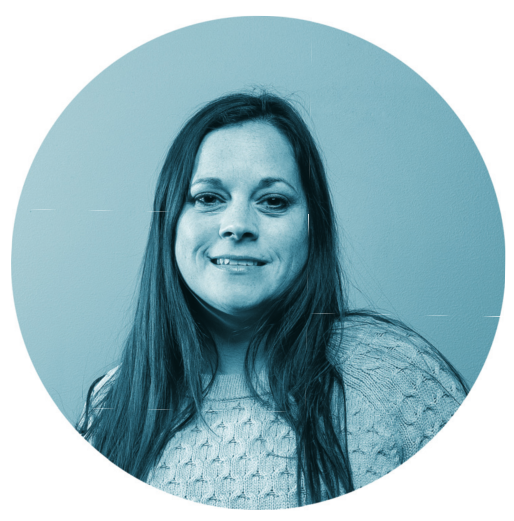
SHANNIN RYAN, Honor
Shannin Ryan was 11 years old when she wrote her book about cancer. Ryan’s fifth grade class was tasked with a creative writing assignment, but it didn’t occur to her that she could write about the chemotherapy and radiation treatments that consumed her life.
"My first book was about unicorns and I was upset," Ryan said. "My mom said, "˜Why are you upset?’ and I said, "˜I just don’t like my book.’ And she said, "˜Why don’t you write about something you know about?’" That conversation sparked "My ABC Book of Cancer."
At first, Ryan’s book felt embarrassing; her classmates had written about unicorns. But an aunt in Troy saw something special in the book and sent the manuscript to a San Francisco publisher.
Ryan was suddenly a published author. She was flown to New York to be interviewed by Faith Daniels on the "Today" show. She became a national spokeswoman for the American Cancer Society. She didn’t make much money; much of what she earned she donated to cancer causes.
"That was my one minute of fame," she said yan may have ended her notoriety at a young age, but most notable today is that she remains cancer-free. She is married and has an adopted son who is 9 years old, the same age Ryan was when she was diagnosed.
"I can’t imagine being a parent to child who had cancer," she said.
It was Valentine’s Day when her life changed. She was a student at St. Mary’s Hannah in Kingsley. She had been sick, but wanted to go to school.
"I pulled a fast one on my parents and told them I was better and I was not," she said. "What you will do to get some Valentines, right?" By noon, she couldn’t hide her pain and she was taken to a doctor.
"I do remember the rush of it and the anxiety of everybody there," she said. "I could just tell that things were not good."
A tumor the size of a grapefruit was discovered.
"That night, the doctors in Traverse City basically told my parents to call my priest to come in. They didn’t think I’d live through the night," Ryan said.
It was determined that if she made it to morning, she’d be taken to C.S. Mott Children’s Hospital in Ann Arbor.
"We didn’t have money then. We didn’t have a good car to get us down there, so my mom’s work gave us a car to drive down," she said.
Treatment took 2 ½ years. Ryan recognizes there were some bleak times, but she learned that she needed to be positive if she was going to survive.
"I only remember being scared, like really scared, that first night when I went into Munson. And then I ended up so out of it with the meds that they were giving me," Ryan said. "I think when you’re older and you look back on it, to survive something like that at a young age, I really think you always have to have a smile on your face."
Ryan looks back today and considers herself lucky. The treatment was successful. There were lasting side effects – infertility and stunted growth – but today she is strong. She cleans houses for a living, an occupation that requires physical stamina.
The experience also brought Ryan to Camp Quality Michigan, a camp for children with cancer held at the Lake Ann Camp and Retreat Center south of Traverse City. Ryan volunteers at Camp Quality to this day.
"When I went to camp, it was great to be around kids that were like me and we could carry on and do things that normal kids got to do and we all understood each other," she said.
Kids can play without self-consciousness even if they’ve lost their hair to chemotherapy. "We could run around without our hats on and let our bald heads shine. We didn’t have to be afraid," she said.
WILLIAM COLEMAN, Roscommon
William Coleman has returned to life in a remote wood stove-heated cabin between Roscommon and Prudenville. The 40-acre parcel was passed down from his grandparents to his parents and now to him. It’s not an easy life for the 74-year-old lung cancer survivor, but it’s what he loves. He hopes that soon he will no longer have to rely on friends and neighbors to chop the firewood he uses to keep warm.
He credits his remarkable recovery to the care he received at Munson Medical Center’s Biederman Cancer Treatment Center. Coleman was pronounced cancer free last month after a year that turned the one-time stagehand’s life upside down.
Coleman’s case began a year earlier with what could have been a false negative. What may have been the beginning of his lung cancer was first diagnosed as pleurisy, a lung inflammation. He returned to his doctor in April when the problem in his lung returned.
His family doctor ordered an X-ray, which revealed a spot on his lung. Tests in Grayling were inconclusive. A pulmonary exam at a Kalkaska doctor’s office showed his lungs were in great shape. Finally, he visited Munson Medical Center for a biopsy.
Coleman said the cancer diagnosis was made less bewildering thanks to the hospital’s patient navigation staff that he credits with helping him through the next steps. T h a t first day, Coleman was at Munson for eight hours and he met with a chemotherapy doctor, a radiation doctor and a surgeon.
"Then the three of them doctors met and we had a break for an hour or so and they decided what had to be done with all the evidence they had from the biopsy," Coleman said. "That was a big change in my life. For about two months I didn’t know what was going on."
Coleman underwent 25 radiation treatments. Despite complications upon complications, Coleman said the staff at Munson – the doctors and the nurses and the patient navigators – helped get him through the troubling times.
They booked him at the Munson Manor Hospitality House five nights a week for five weeks so that he could make his radiation and chemotherapy treatments without having to commute. They also helped him secure financial aid.
"I live 90 miles away, so rather than drive 90 miles and have 15 minutes of treatment, they put me up at Munson Manor," Coleman said. "It was rather peaceful, actually. It was very enjoyable. I would highly recommend that place."
Coleman had surgery in October. "It’s pretty much I’m cancer free, so that’s a very good thing. It’s a scary thing when it first comes into your life, but right now, with the treatment that I got, I’m really happy with it," he said.
Proof of the extensive operation that Coleman survived lies in the scar marking his torso.
"Some of my friends said, "˜Well, they cut you in half,’" he said.
Coleman quit smoking 28 years ago. That could be the source of the cancer. Or, he believes, it could have been the years he spent working on old cars, breathing in all sorts of things. He doesn’t know.
Coleman watched his wife die of throat cancer in 1968. He is amazed how much has changed – how little could be done then and how much treatment has advanced today.
"It’s amazing what can be done today," he said.
Trending

The Valleys and Hills of Doon Brae
Whether you’re a single-digit handicap or a duffer who doesn’t know a mashie from a niblick, there’s a n... Read More >>
The Garden Theater’s Green Energy Roof
In 2018, Garden Theater owners Rick and Jennie Schmitt and Blake and Marci Brooks looked into installing solar panels on t... Read More >>
Earth Day Up North
Happy Earth Day! If you want to celebrate our favorite planet, here are a few activities happening around the North. On Ap... Read More >>


